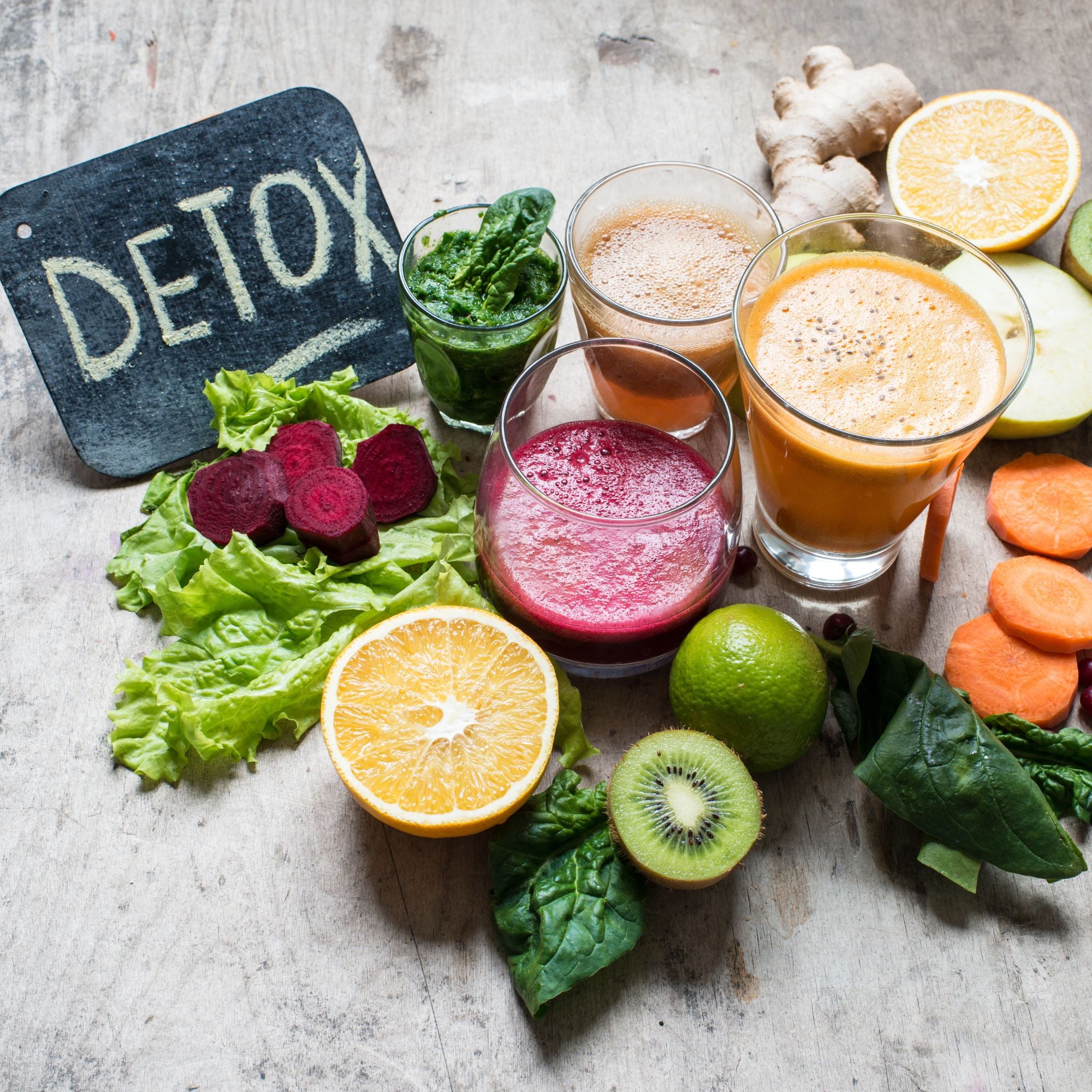Detox diets and cleanses have gained popularity in recent years as a means of improving health and well-being. Proponents of these regimens claim that they can cleanse the body of toxins, boost energy levels, aid weight loss, and improve digestion.
In this article, we will explore the efficacy of detox diets and cleanses to determine if they truly deliver on their promises. Through examining the scientific evidence behind detoxification and the potential risks and limitations of these diets, we will separate fact from fiction and shed light on the reality of detoxing.
While detox diets and cleanses may sound enticing, it is essential to take a balanced approach to wellness. We will discuss the importance of a nutrient-rich diet, regular exercise, adequate sleep, and stress management in supporting the body's natural detoxification processes.
If you are considering a detox diet or cleanse, it is vital to consult a healthcare professional beforehand. Each person's body is unique, and what may work for one individual may not be suitable for another. Seeking professional advice ensures that you make informed decisions regarding your health and well-being.
Join us as we delve into the realities behind the detox craze and explore a more holistic approach to wellness.
Understanding Detox Diets and their Claims
Detox diets and cleanses have gained significant popularity in recent years, promising a range of health benefits. In this section, we will explore the details of detox diets and the claims they make, shedding light on whether they live up to the hype.
Detox diets often advertise various benefits, including weight loss, increased energy, improved digestion, and enhanced detoxification. Advocates of these diets believe that by following specific eating plans and eliminating certain foods, toxins in the body can be eliminated, leading to improved health and well-being.
The methods used in detox diets can vary, but common approaches include juice cleanses, fasting, and specific food restrictions. Juice cleanses involve consuming only fruit and vegetable juices for a designated period, while fasting entails abstaining from food altogether for a set time. Some detox diets may also include restricted food groups, such as avoiding dairy, gluten, or processed foods.
While detox diets claim to offer numerous benefits, it is essential to approach them with caution and critical thinking. The scientific evidence supporting the effectiveness of these diets is limited, with most claims based on anecdotal experiences rather than rigorous research.
It is important to note that the body has its natural detoxification processes in place, primarily carried out by the liver, kidneys, and gastrointestinal system. These organs work together to eliminate waste and toxins from the body without the need for extreme dietary measures.
In the next section, we will explore the science behind detoxification and its relationship to detox diets. We will delve deeper into the body's natural detox processes and examine whether detox diets truly support or hinder this important function.

The Science Behind Detoxification
In this section, we will explore the scientific evidence behind detoxification and its relationship to detox diets and cleanse regimens. Understanding how the body naturally detoxifies is crucial in evaluating whether these diets effectively support or hinder this process.
The body has its own detoxification systems in place, primarily involving the liver, kidneys, colon, and skin. These organs and systems work together to eliminate toxins and waste products and maintain overall health. Detox diets claim to enhance these processes by removing accumulated toxins and promoting better health.
While some detox diets may offer short-term benefits, it's important to understand their limitations and potential risks. One of the main concerns with detox diets is the potential for nutrient deficiencies, as they often involve severe calorie restriction and limited food groups. This can lead to inadequate intake of essential nutrients like vitamins, minerals, and protein.
Furthermore, detox diets can have potential side effects such as fatigue, dizziness, headaches, and digestive issues. These symptoms may arise due to the rapid elimination of certain food groups or the body's adjustment to a sudden change in diet.
It's crucial to note that the body's natural detoxification systems are highly efficient and do not necessarily require external interventions. Eating a balanced diet rich in fruits, vegetables, whole grains, lean proteins, and healthy fats, along with regular exercise and proper hydration, can support the body's natural detoxification processes.
While detox diets may offer a temporary sense of cleansing and rejuvenation, long-term health and well-being are best achieved through sustainable lifestyle choices. Seeking guidance from a healthcare professional is essential to ensure that any dietary changes you make align with your individual needs and overall health goals.
The Reality of Detox Diets
Detox diets have gained significant popularity in recent years, with many claiming they can help cleanse the body and promote weight loss. However, it's important to separate fact from fiction when it comes to these regimens.
While detox diets and cleanses may provide short-term weight loss results, the scientific evidence supporting their effectiveness in long-term weight management is lacking. These diets often involve severe calorie restrictions and eliminate entire food groups, which can lead to nutrient deficiencies and potentially harm your health.
It's important to note that the body has its own natural detoxification process. The liver, kidneys, and lymphatic system work together to remove toxins and waste products from the body. This process is ongoing and does not necessarily require the use of detox diets or cleanses.
Instead of relying solely on detox diets, it's essential to adopt a balanced and sustainable approach to overall health and well-being. This includes consuming a nutrient-rich diet, engaging in regular physical activity, getting adequate sleep, and managing stress.
Incorporating whole foods such as fruits, vegetables, lean proteins, and whole grains into your diet is a key component of a healthy lifestyle. These foods provide essential nutrients and antioxidants that support the body's natural detoxification processe.

The Importance of Sustainable Change
It's important to recognize that lasting health and well-being aren't achieved through quick fixes or restrictive diets. While detox diets may promise immediate results, they often lead to yo-yo dieting and can be detrimental to your long-term health goals.
Achieving and maintaining a healthy weight is a journey that involves sustainable changes in eating habits and lifestyle. Rather than focusing on short-term detox diets, it's more beneficial to adopt a long-term approach that includes regular physical activity, a well-rounded diet, and healthy habits.
|
Detox Diets |
Balanced Approach |
|
Short-term weight loss |
Gradual, sustainable weight management |
|
Potential nutrient deficiencies |
Nutrient-rich diet |
|
Restrictive and unsustainable |
Flexible and adaptable to individual needs |
|
Focused on elimination |
Emphasizes overall health and well-being |
In conclusion, detox diets may not live up to their claims of detoxification and long-term weight loss. It's more effective and sustainable to focus on a balanced approach to wellness that includes healthy eating, regular exercise, and lifestyle changes that support the body's natural detoxification process.
A Balanced Approach to Wellness
In today's world, where detox diets and cleanses are often promoted as a quick fix for health issues, it is important to remember that a more holistic approach to wellness is key. While detox diets and cleanses may offer short-term benefits, it is essential to focus on long-term sustainable habits that support the body's natural detoxification processes.
One crucial aspect of a balanced approach to wellness is maintaining a healthy, nutrient-rich diet. Consuming a variety of whole foods such as fruits, vegetables, lean proteins, and whole grains provides essential vitamins, minerals, and antioxidants that support overall health and detoxification. Avoiding processed foods, sugary drinks, and excessive alcohol intake can also aid in reducing the burden on the body's detoxification systems.
Regular exercise is another vital component of a balanced approach to wellness and detoxification. Engaging in physical activity not only helps to improve circulation but also supports the lymphatic system, which plays a crucial role in eliminating toxins from the body. Aim for at least 30 minutes of moderate-intensity exercise most days of the week, such as brisk walking, jogging, or cycling.
Adequate sleep is often underestimated but is crucial for detoxification and overall well-being. During sleep, the body goes through important restorative processes, including detoxification and cellular repair. Aim for a consistent sleep routine of 7-9 hours per night to support optimal detoxification and overall health.
Stress management is another significant aspect of a balanced approach to wellness. Chronic stress can have a negative impact on the body's detoxification systems, leading to imbalances and compromised overall health. Incorporating stress reduction techniques such as mindfulness meditation, yoga, deep breathing exercises, or engaging in hobbies can help support the body's natural detoxification processes.
Incorporating these healthy habits into your daily routine can contribute to a more balanced approach to wellness and whole-body detoxification. Remember, true detoxification is an ongoing process that requires consistent effort and a focus on overall health and well-being. By prioritizing a nutrient-rich diet, regular exercise, adequate sleep, and stress management, you can help support your body's natural detoxification mechanisms.

Consult a Healthcare Professional
Before embarking on any detox diet or cleanse, it is crucial to consult a healthcare professional. While these regimens have gained popularity for their potential health benefits, it is essential to remember that each individual's body is unique, and what works for one person may not be suitable for another.
A healthcare professional can provide personalized guidance based on your specific health needs and goals. They can assess whether a detox diet or cleanse is appropriate for you, taking into consideration factors such as your overall health, medical history, and any underlying conditions.
By consulting a healthcare professional, you can make informed decisions about your health and ensure that the detox diet or cleanse you choose aligns with your individual needs. They can also monitor your progress and address any concerns or questions that may arise during the process.





